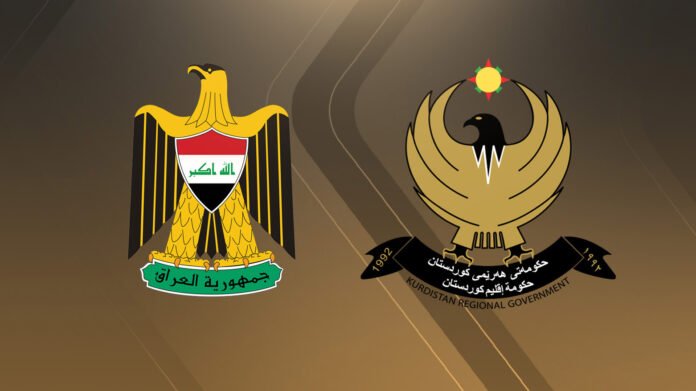A major political meeting between Erbil and Baghdad is set. The goal is simple but urgent: solve the ongoing crisis around oil exports and unpaid salaries in the Kurdistan Region. The spotlight falls once again on the—oil and salary deal—which has been a sticking point in federal-regional ties.
Tensions have risen as Baghdad insists on receiving both oil and non-oil revenues before releasing salary funds. Erbil, however, faces mounting obstacles. Drone attacks on oil infrastructure have sharply cut output. Consequently, the Kurdistan Regional Government (KRG) struggles to meet Baghdad’s demands.
Officials from both sides will attend Tuesday’s talks in Baghdad. The venue remains undecided, but it may be the Ministry of Finance or the Council of Ministers’ reception halls. Despite uncertainty, expectations are high for a concrete breakthrough.
Atwan Al-Atwani, chair of the Parliament’s Finance Committee, stressed Baghdad’s position. He made it clear that no funds will move until the KRG delivers on oil and revenue. This oil and salary deal stands at the center of the negotiations.
Mohammed Nouri, another committee member, confirmed that the KRG must supply 230,000 barrels of oil for export via SOMO, the state oil marketer. Alongside that, they must transfer 120 billion dinars in non-oil revenue. Only after meeting these two terms will salaries be released.
Nouri expressed cautious optimism. He believes both sides can reach consensus at the meeting. Yet, the challenge remains steep. Drone attacks have reduced Kurdistan’s oil production from 280,000 barrels a day to just 80,000. These figures, based on a government report, highlight the severity of the security threat.
Ikhlas Al-Dulaimi, another Finance Committee member, said the meeting will also define the mechanism for future oil exports. She noted that if oil exports resume under this new plan, salaries for May, June, and July will follow shortly after.
The security crisis facing Kurdistan cannot be ignored. According to the Eco Observatory for Economy, 58 drone attacks targeted regional oil sites this month alone. These assaults cripple critical infrastructure and put the oil and salary deal under immense pressure.
This political standoff comes at a delicate time. Public workers across the Kurdistan Region have gone months without pay. As frustration grows, both governments must move quickly and decisively.
The success of meeting may hinge not only on agreements but also on security cooperation. The oil and salary deal now stands at the crossroads of diplomacy and defense. If this meeting fails, the consequences could deepen existing divisions.

